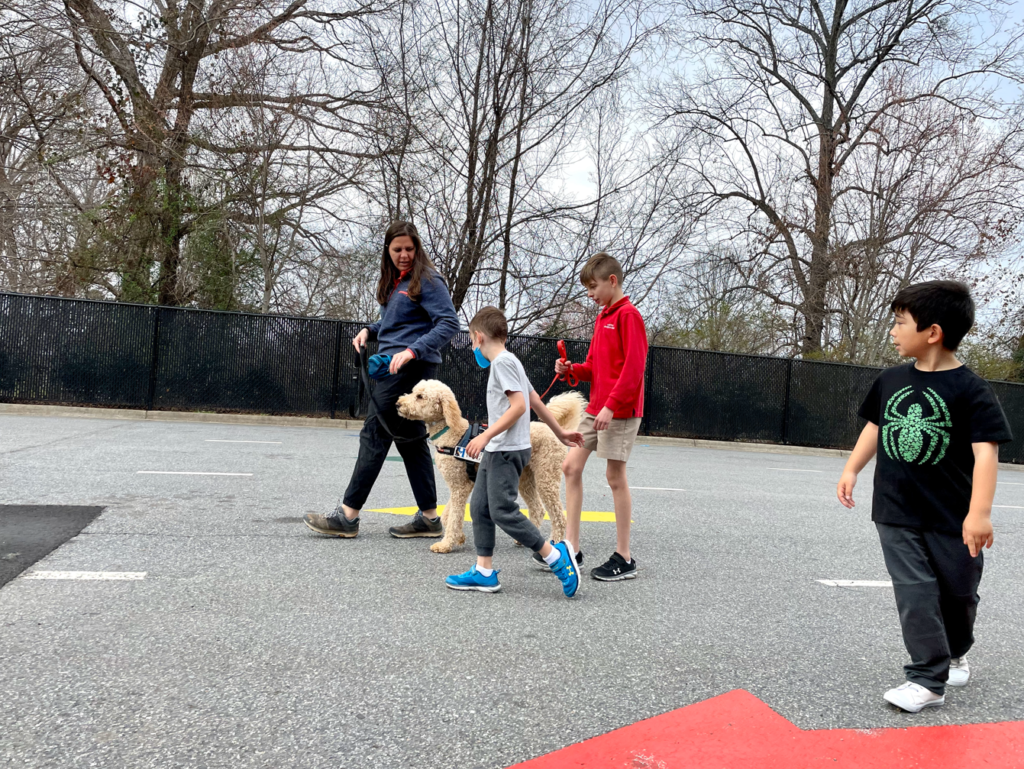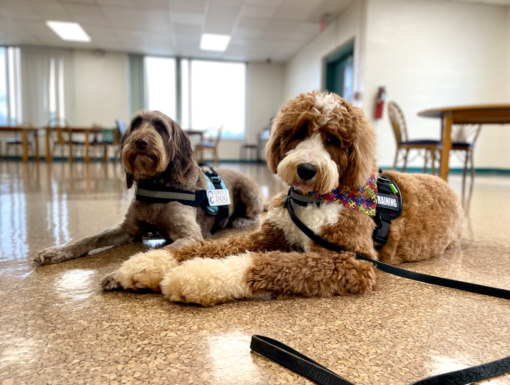A career as a service dog trainer can provide many benefits. Providing fully-trained service dogs to individuals with disabilities is an extremely rewarding job, as it helps those in society who require help the most. WIthout the support of service dogs, the quality of life for these people would be significantly diminished.
However, when choosing a career path, you want to ensure that the path you choose will have sufficient earning potential. There are several factors that can influence the money you can make as a service dog trainer, including:
- Your level of education
- Your level of experience
- Where you live
- Your service offerings
- Whether you choose to work for yourself, or for another organization.
In this article, we’ll look at the average salary for service dog trainers; how each of the factors above can influence the amount you can earn in the field of service dog training; and education options to boost the income you can earn.
What is the average salary for a service dog trainer?
There is a lack of reliable data on the average pay for service dog trainers. Many professional dog trainers offer service dog training as an additional service to obedience and other dog training services, and breaking out the portion of the pay related to service dog training isn’t a straightforward exercise.
As of April 2023, some of the prominent careers and employment sites list a typical service dog salary in the United States as follows:
- ZipRecruiter – $33,254/year
- GlassDoor – $37,646/year
- Comparably – $30,718/year
- Zippia – $34,195/year
These estimates may be derived from actual employee salaries that users have shared with the website, or sourced from job listings on other websites.
The accuracy of this data is open to debate. As a contrasting point, in our dog trainer survey of professionals across the industry, trainers who offered service dog training among their service options earned anywhere between $40,000 and $350,000 per year. Again, it is not possible to discern how much of their income was derived from service dog activities.

Factors which influence your earning potential
As with any job, there are several factors which can influence the amount you can make as a service dog trainer. These factors include:
Education
Our 2020 Dog Trainer Survey showed a correlation between education and earning potential. On average, dog trainers who had achieved some level of certification in the world of dog training earned 40% more than those without any formal education. Studying a program focused on the specifics of service dog training can help improve your knowledge and increase the likelihood of successful outcomes for your clients.
Experience
In any line of work, the more experience you accrue, the greater your ability to problem-solve. The lessons you learn throughout your time as a service dog trainer can be applied to future puppies you train to become service dogs. In addition, if you have a proven track record and reputation as a service dog trainer, it can be easier to charge more for your services.
Location
Your location can have a huge influence on the amount you can earn, as it dictates what your clients are willing (or have available) to pay for a service dog. If you only offer services within a radius in your locality – and you live in a less affluent area – this may restrict your ability to offer service dog training. To circumvent this, you can expand your service area, or even offer to deliver service dogs to other parts of the country.
Your service offerings
Your education, experience, and the demand for particular types of service dog training will affect the specific service dog training options you are able to provide. You may also choose to offer extra services relating to service dog training, such as breeding/raising service dog puppy prospects, delivering service dogs, one-off consultations, and more. A wider range of services can result in a more diverse range of revenue streams.
Working for an existing organization vs. self-employment
There are pros and cons for working for an existing organization which offers service dog training, or setting up your own business as a sole proprietor or an LLC. The benefits and drawbacks will depend on your personality, your overall ambitions, and your desire to strike out on your own or work as part of an existing team. Self-employment may offer greater potential to increase your earnings in the longer run, but starting your own business can be a steep learning curve.

What exactly is involved in service dog training?
As a service dog trainer, you will work with service dog prospects and train them to perform specific tasks for their handler. Depending on the scope of the work, you may also be involved in puppy selection, puppy socialization, service dog delivery, and follow-up/refresher training.
For more information, check out our guide on how to become a service dog trainer.
Education options for service dog trainers
Whether you’re an existing service dog trainer looking to expand your knowledge, or you’re totally new to the field but want to gain the education needed for a successful career, the Service Dog Trainer program at the School for Dog Trainers provides you with the essential information you need to become a best-in-class service dog trainer.
Our program lasts for 18 weeks and covers all aspects of service dog training. You’ll learn about the fundamentals of canine behavior and how dogs learn, before moving on to understand the service dog landscape and how a variety of tasks can be trained to benefit service dog handlers. Your instructors will be industry experts who have successfully trained service dogs for families across the United States.
In addition to classroom theory and hands-on training, our Service Dog program also provides you with the business and marketing fundamentals to help you succeed as a service dog trainer. Countless graduates from our School have remarked how this section of the program paved the foundations for them to differentiate themselves from their competition. Contact us today for more information on our Service Dog Trainer program.

